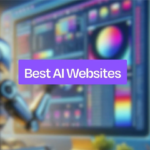Introduction
The AI Revolution in Marketing
1. Understanding AI in Marketing
AI, with its ability to analyze vast datasets, identify patterns, and make data-driven predictions, has become a linchpin in marketing strategies. From personalized customer experiences to optimized advertising campaigns, AI is a driving force in achieving marketing goals.
2. The Rise of AI Marketing Tools
The market is flooded with AI-driven tools designed to streamline marketing efforts and deliver unprecedented results. Let’s explore some of the key players that are revolutionizing the marketing landscape.
AI-Powered Customer Insights
1. ChatGPT: Transforming Customer Interactions
Key Features:
Natural Language Understanding: ChatGPT’s language model enhances customer interactions by understanding and responding in natural language.
Personalized Recommendations: AI-driven algorithms analyze customer preferences, enabling personalized product recommendations.
24/7 Customer Support: ChatGPT ensures round-the-clock availability for customer queries, improving overall satisfaction.
2. Conversica: AI-Powered Sales Conversations
Key Features:
Lead Engagement: Conversica’s AI engages leads through personalized email conversations, identifying potential customers.
Automated Follow-Ups: The tool automates follow-up interactions, ensuring leads are nurtured throughout the sales funnel.
Lead Qualification: AI evaluates lead responses, categorizing them based on readiness for sales engagement.
AI in Content Creation and Optimization
1. Copy.ai: Elevating Content Creation
Key Features:
AI Copywriting: Copy.ai generates high-quality, AI-generated copy for various marketing materials, from ad headlines to blog content.
Content Variations: AI provides multiple iterations of content, allowing marketers to choose the most impactful version.
Time Efficiency: Copy.ai accelerates content creation, freeing up time for strategic planning.
2. Acrolinx: Ensuring Content Consistency
Key Features:
Content Optimization: Acrolinx’s AI analyzes content for consistency and adherence to brand guidelines.
SEO Integration: AI-driven recommendations optimize content for search engine visibility.
Multichannel Consistency: The tool ensures consistent messaging across various marketing channels.
AI-Enhanced Advertising Strategies
1. Albert: Autonomous Advertising Campaigns
Key Features:
Autonomous Optimization: Albert’s AI autonomously optimizes advertising campaigns across channels for maximum impact.
Cross-Channel Coordination: AI ensures cohesive messaging and strategy alignment across multiple advertising platforms.
Performance Analytics: Albert’s AI provides detailed analytics for continuous campaign improvement.
2. Pattern89: Predictive Advertising Analytics
Key Features:
Predictive Insights: Pattern89’s AI analyzes historical data to predict ad performance and recommends optimizations.
Creative Insights: AI evaluates creative elements to identify trends and optimize visual components.
Budget Allocation: The tool suggests optimal budget allocation based on predicted performance.
AI-Driven Marketing Analytics
1. Tableau: Data Visualization and Analytics
Key Features:
Visual Data Exploration: Tableau’s AI-driven analytics enable marketers to explore and understand complex datasets visually.
Predictive Analytics: AI algorithms predict future trends and outcomes based on historical data.
Data-Driven Decision-Making: The tool empowers marketers to make informed decisions through comprehensive data analysis.
2. Google Analytics 4: Next-Gen Analytics
Key Features:
Machine Learning Insights: Google Analytics 4 leverages machine learning to provide insights into user behavior and trends.
Cross-Platform Tracking: AI ensures accurate tracking of user interactions across various platforms and devices.
Audience Building: The tool uses AI to create targeted audiences based on user behavior and preferences.
AI for Social Media Marketing
1. Hootsuite: Social Media Management with AI
Key Features:
Content Scheduling: Hootsuite’s AI optimizes the scheduling of social media posts for maximum reach.
Social Listening: AI monitors social media for brand mentions and sentiment analysis.
Performance Analytics: The tool provides AI-driven analytics for social media performance evaluation.
2. Buffer: AI-Driven Social Media Strategy
Key Features:
Post Optimization: Buffer’s AI analyzes the optimal times for posting content based on audience engagement patterns.
Hashtag Suggestions: AI recommends relevant hashtags to improve post visibility.
Competitor Analysis: The tool uses AI to analyze competitors’ social media strategies and suggests improvements.
AI Marketing Compliance and Security
1. OneTrust: AI for Marketing Compliance
Key Features:
Data Privacy Compliance: OneTrust’s AI ensures marketing practices align with data privacy regulations.
Automated Consent Management: AI automates consent management for marketing activities.
Risk Assessment: The tool uses AI to assess and mitigate risks related to marketing compliance.
2. Symantec: AI-Powered Marketing Security
Key Features:
Threat Intelligence: Symantec’s AI analyzes threats and vulnerabilities in marketing platforms.
Phishing Detection: AI detects and prevents phishing attacks targeting marketing campaigns.
Brand Protection: The tool uses AI to monitor and protect the brand from cyber threats.
Conclusion: Embracing the AI Advantage in Marketing
As we navigate the intricacies of the modern marketing landscape, the role of AI becomes increasingly pivotal. From customer engagement to advertising optimization and data analytics, AI marketing tools offer a multifaceted approach to achieving marketing objectives. Embracing these tools is not just a technological leap; it’s a strategic imperative in the pursuit of effective, data-driven, and future-proof marketing strategies. As AI continues to evolve, its integration into marketing practices will undoubtedly redefine the possibilities and potential of the marketing world. It’s not just a revolution; it’s the future of marketing.





